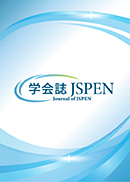Volume 5, Issue 2
Displaying 1-7 of 7 articles from this issue
- |<
- <
- 1
- >
- >|
-
2023Volume 5Issue 2 Pages 57
Published: 2023
Released on J-STAGE: November 19, 2023
Download PDF (127K)
ORIGINAL ARTICLE
-
Article type: ORIGINAL ARTICLE
2023Volume 5Issue 2 Pages 59-65
Published: 2023
Released on J-STAGE: November 19, 2023
Download PDF (402K) Full view HTML -
Article type: ORIGINAL ARTICLE
2023Volume 5Issue 2 Pages 67-73
Published: 2023
Released on J-STAGE: November 19, 2023
Download PDF (966K) Full view HTML -
Article type: ORIGINAL ARTICLE
2023Volume 5Issue 2 Pages 75-80
Published: 2023
Released on J-STAGE: November 19, 2023
Download PDF (429K) Full view HTML
CASE REPORT
-
Article type: CASE REPORT
2023Volume 5Issue 2 Pages 81-87
Published: 2023
Released on J-STAGE: November 19, 2023
Download PDF (702K) Full view HTML -
Article type: CASE REPORT
2023Volume 5Issue 2 Pages 89-93
Published: 2023
Released on J-STAGE: November 19, 2023
Download PDF (2186K) Full view HTML
-
2023Volume 5Issue 2 Pages 95-96
Published: 2023
Released on J-STAGE: November 19, 2023
Download PDF (608K)
- |<
- <
- 1
- >
- >|
